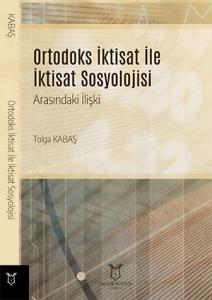Ortodoks İktisat ile İktisat Sosyolojisi Arasındaki İlişki
Synopsis
Bu kitap, Ortodoks İktisat ile İktisat Sosyolojisi arasındaki ilişkiyi ele almaktadır. Batı'nın rasyonelleşme süreci, rekabetçi bireycilik ve tüketim odaklı ekonomi modeliyle toplumlara etki etmiş ve büyük sarsıntılara neden olmuştur. Bu durum, madde ile mana arasındaki makasın açılmasına ve toplumların çözülmesine yol açmıştır. Ancak, dünyada başka medeniyetlere ait daha insani ve sıcak bir rasyonellik olduğu görülmektedir. Ahlaki bir yaşam, kendimizi diğerleriyle özdeşleştirdiğimiz veya tanımladığımız bir yaşamdır. Bu tür bir yaşamda daha büyük hedeflerimiz olur ve hayatımıza anlam katar. Batı dünyasında hakim olan çıkar odaklı düşünceye alternatif bir görüş henüz geliştirilememiştir. Bu kitap, bireyin önem kazandığı geleneksel toplumların tehlikede olduğunu ve güçlü sosyal bağların ve geleneksel bağların olmadığı bir toplumda bireylerin nasıl ahlaki davranacağını araştırmaktadır. Ayrıca, tüm dünyanın Batı modelini takip etmesi durumunda çevre sorunlarının ve sosyal sorunların artacağı, ancak mutluluk düzeyinin artmayacağı vurgulanmaktadır. Bu kitap, Ortodoks İktisat ve İktisat Sosyolojisi arasındaki ilişkiyi anlamak isteyen okuyucular için önemli bir kaynak olacaktır.
This book examines the relationship between Orthodox Economics and Economic Sociology. The Western process of rationalization, competitive individualism, and consumption-oriented economic model has influenced societies and caused significant disruptions. This has led to a widening gap between material and spiritual aspects, resulting in the disintegration of communities. However, it is observed that there are more humane and warm rationalities belonging to other civilizations in the world. A moral life is one in which we identify or define ourselves in relation to others. Such a life entails having greater goals and giving meaning to our lives. An alternative perspective to the prevailing interest-focused thinking in the Western world has not yet been developed. This book investigates how individuals will behave morally in a society where traditional communities, characterized by strong social and traditional bonds, are endangered. Additionally, it emphasizes that if the entire world were to follow the Western model, environmental and social problems would increase, but the level of happiness would not necessarily rise. This book will be an important resource for readers who want to understand the relationship between Orthodox Economics and Economic Sociology.
Downloads

